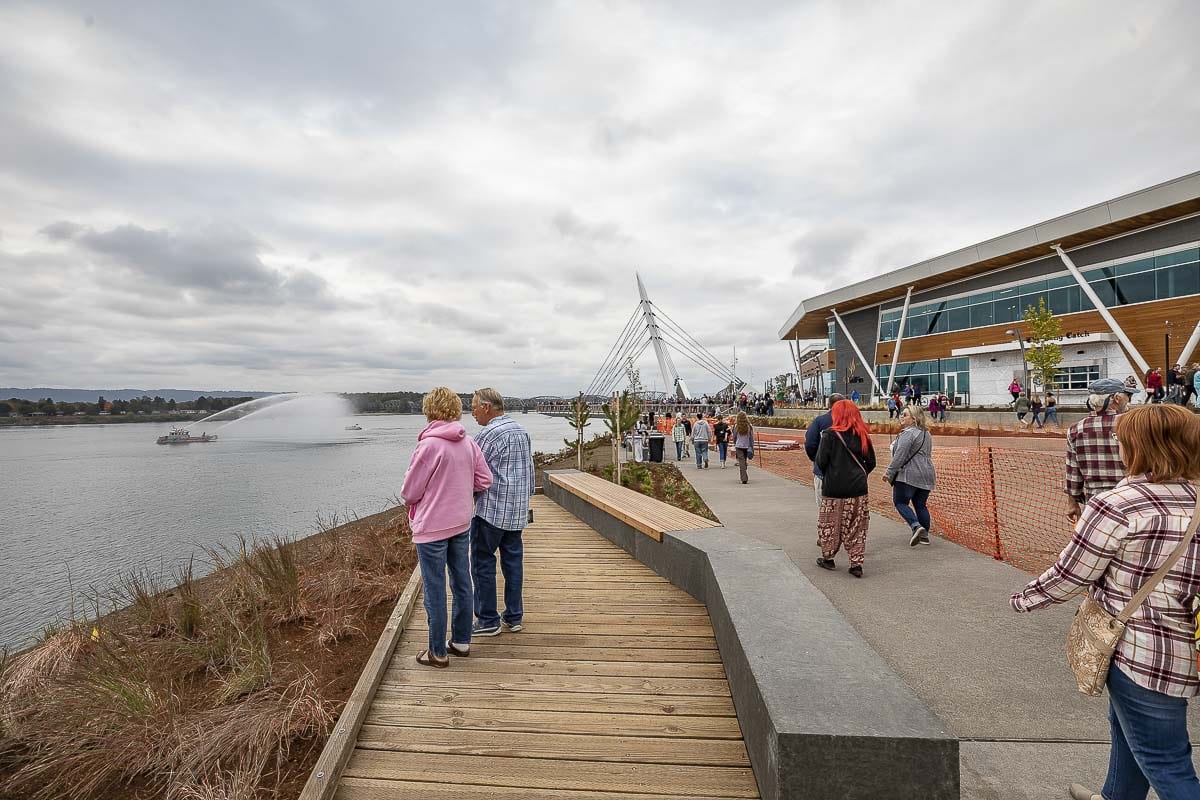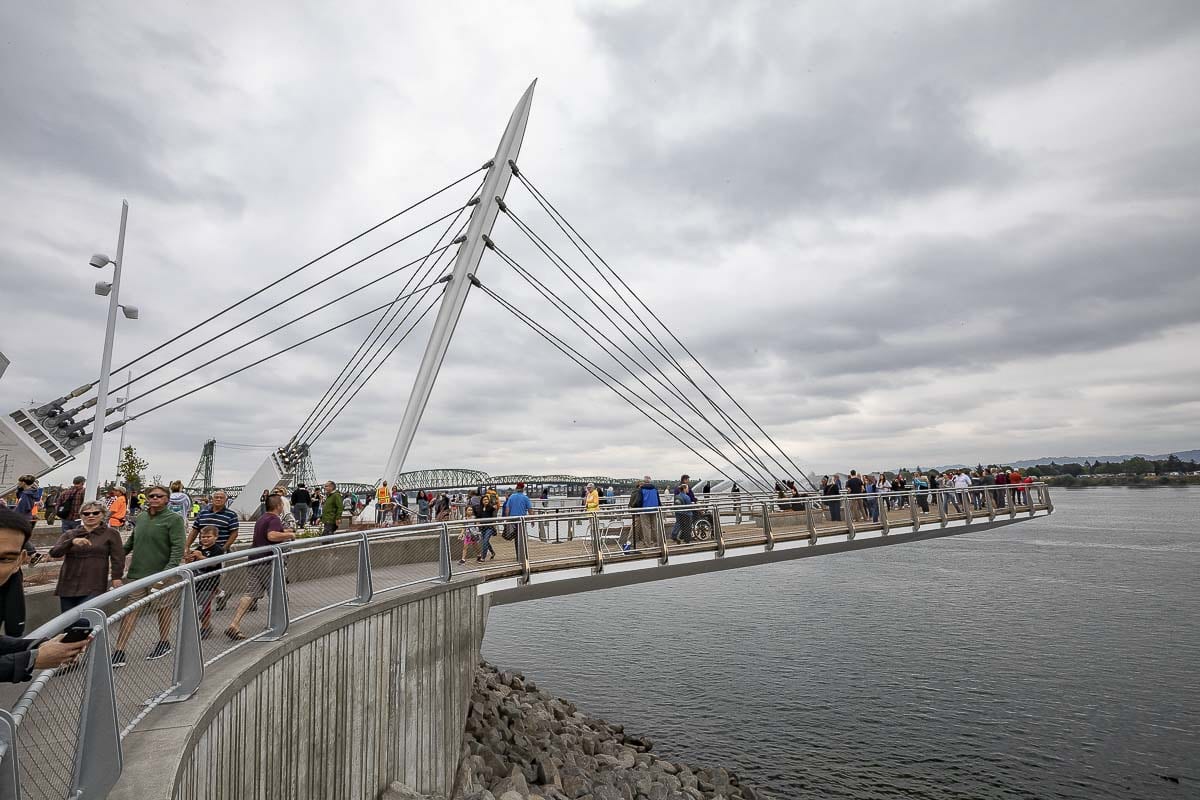The money would come from a mix of new property and business taxes, along with other fees
VANCOUVER — After 22 months and more than 17 meetings, the Executive Sponsors Council for a Stronger Vancouver delivered their recommendations to the Vancouver City Council this week.

The 10-member group has been working on a 10-year plan to fund capital projects, traffic safety improvements, and city services. At a two-hour work session on Monday they outlined a proposal for tax increases totaling $30.1 million dollars, spread across property owners, businesses, and other fees.
“We’re growing. We want to continue to have a vibrant city,” said council member Jennifer Rhoads. “We want to ensure that our tax revenues will keep pace with inflation and support some of these capital projects and operations, in order to provide the services that all of our city members deserve and need.”
The ultimate goal of the group has been to come up with ways to fund needed capital improvements, such as a new Public Works emergency operations center, two fire station replacements and the renovation of a third, along with additional funding for the Fourth Plain Forward and Heights Sub-area redevelopment projects.
“The longer this is delayed, the more trouble we’re going to have in the future with capital projects and services that, if they’re not implemented, is going to put us in a worse position,” said Rhoads.
The group is also making recommendations to fund a redesign of several parks, add new amenities to others, and develop nine of the city’s 19 undeveloped open spaces.
That list of proposed projects represents a 10-year capital investment of $278 million and annual operating costs of $14.9 million. That is money the city currently doesn’t have.

The council put the blame on after-effects from the great recession, state law that caps local property tax levy increases at one percent annually, and the 2002 elimination of the city’s Business and Occupancy (B&O) tax when other revenue sources were available.
“My big takeaway from this process is I’m frustrated with the toolbox,” said council co-chair Tim Schauer, “and I know that’s not your doing, it’s legislatively provided to you. They’re not what I would call the best and most fair tools in the toolbox, but they are what we have.”
To fund the capital improvement plan and ongoing operating costs, the group is recommending a series of tax and fee increases totaling just over $30 million per year, split between three areas.
The first would require voters to approve a multi-year permanent levy lid lift for local property taxes. The goal would be to eventually raise $9.7 million in annual revenue through a property tax increase of around $0.44 per $1,000 of assessed value. That would equate to around $154 per year on a $350,000 home.
The second piece of the funding pie would be a reintroduction of the B&O tax at $0.55 per $1,000 of annual gross receipts, and increasing the business license surcharge by $70 per full-time employee to $160. Under the council’s plan, businesses with less than $50,000 in gross receipts would be exempted from the B&O tax in 2020, with that floor increasing to $100,000 in 2021 and beyond.
“We’re looking for the B&O to hit a dollar amount, not a percentage,” Schauer said, noting that it could be adjusted as needed in the first couple years. “We’re looking for a way for everybody to share in this responsibility, that’s why we’re looking for both the head tax and the B&O.”
The group noted that the local property tax burden has increasingly shifted away from business and towards residential. In 2012 it was a 70/30 split, with the majority on private property owners. Last year that had shifted to 78/22.
As part of putting together their recommendation, the council also had an analysis done of business taxes in surrounding cities.
“In general Eco Northwest concluded that Vancouver’s current tax environment is competitive for business location, retention, and expansion,” Schauer said, “and that any of the three scenarios would not materially change that.”
“Local businesses are just unsure about it,” said Rhoads. “They’re concerned. They’re worried about it inhibiting our ability to attract new business and how it may impact themselves personally.”
But the group concluded that the cost to local businesses would be more than offset by improvements in local traffic infrastructure, safety improvements, city services, and amenities like parks and public spaces.
The final third of the funding plan would include a 2.5 percent utility tax rate increase, new park impact fees, a business property tax for a downtown improvement area, a 5 percent admissions tax for local movie theaters, and the $10 vehicle license tab increase. The recently approved sales tax for internet purchases is expected to raise an additional $3 million annually.
“Diversity of revenues is important to ensure balanced tax incidents, as well as resilience through economic cycles,” said Schauer. “We recognize that over the course of a decade the economy will move and shift, and so will the community, and so we want a set of revenues that won’t be overly vulnerable.”
The next steps will include a follow-up work session next Monday to go over some of the finer details of the proposal. The city council will then hold a four-hour mini-retreat to begin an internal conversation about the implications of the revenue package. There will then be a series of public hearings and feedback before a final program and funding package vote sometime in late Summer or early Fall.
“This is the long view,” concluded Schauer. “It’s a big ask, it’s the big picture, we’d like some certainty in the future.”
One element the council members stressed is that they want the funding proposals to be considered all together.
“A piecemeal approach, one at a time, would be susceptible to changes and would erode the likelihood of achieving the desired outcome,” said Schauer.
A detailed report on the Stronger Vancouver Executive Sponsors Council’s work can be found at strongervancouver.org, along with a calculator business owners can use to see how their expenses would change if the proposed taxes and fees are approved.




